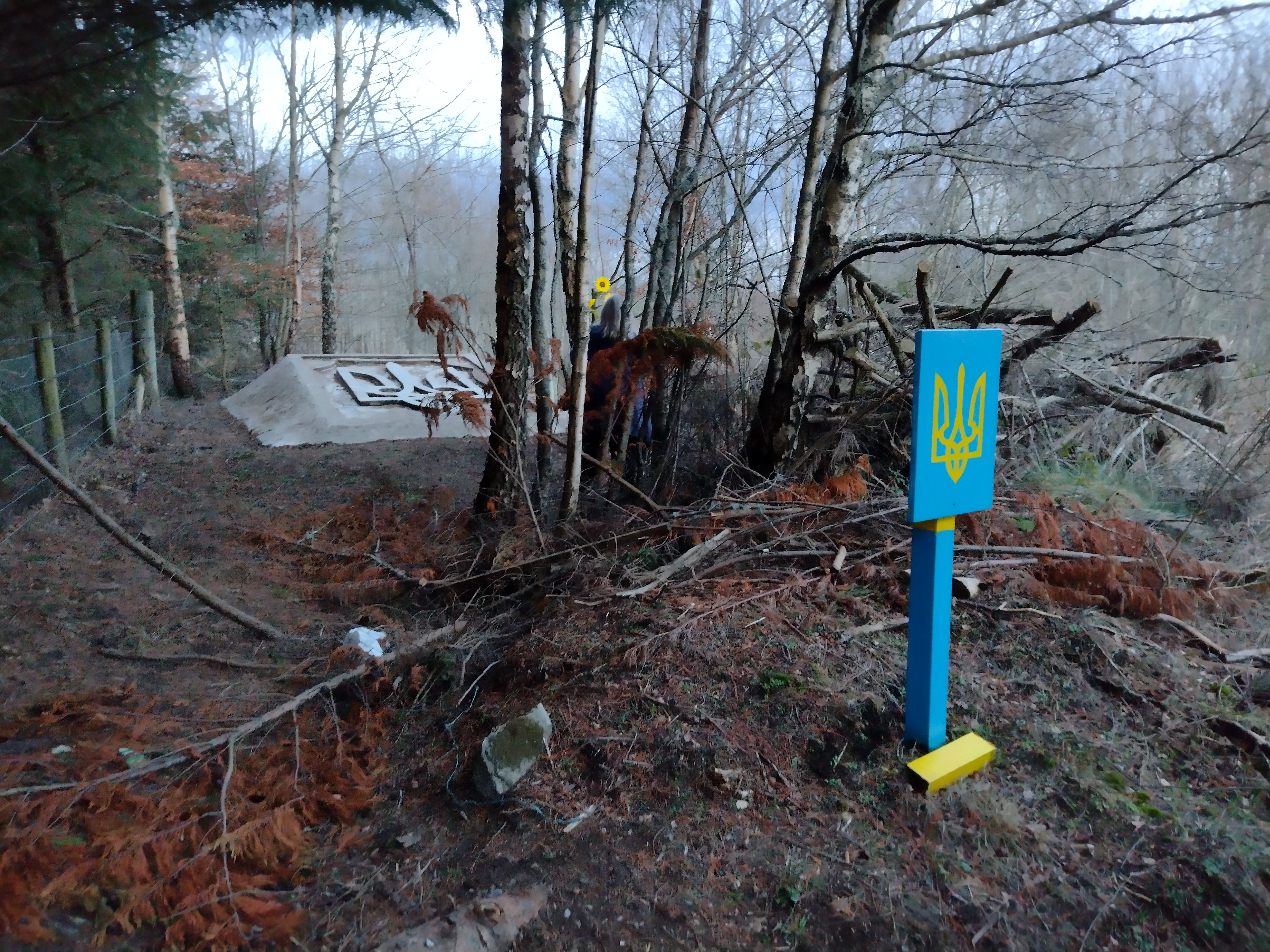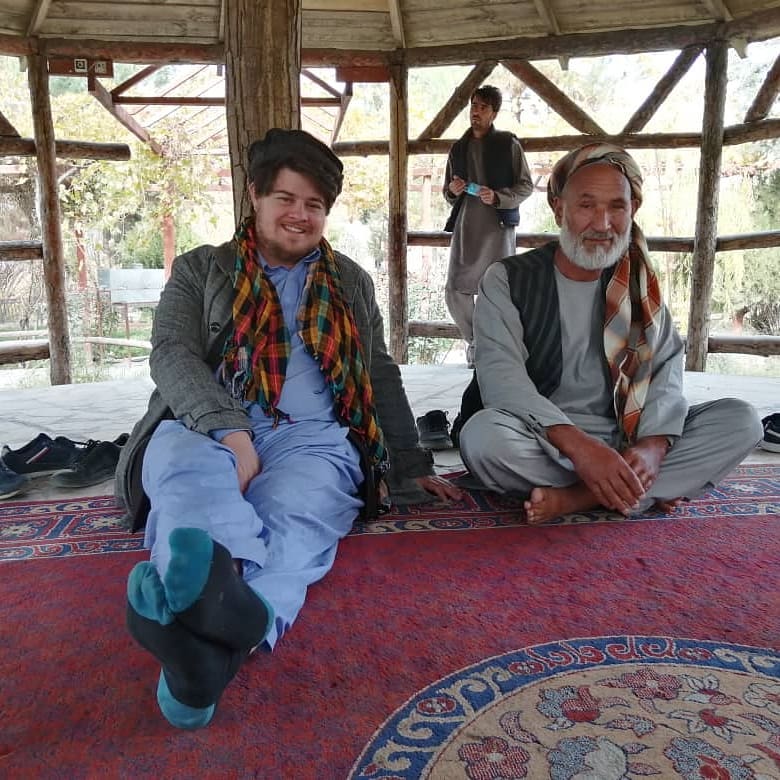The Scottish Highlands are famous for many things: glorious scenery,
the home of whiskey, lochs and glens. A little piece of Ukrainian history isn’t normally on the list of things you associate with Scotland.
Just near Maryburgh, north of Inverness, lies a little-known monument erected in 1949 by the Ukrainian nationalists who lived in a displaced persons camp at the site.
Originally this was a Prisoner of War (POW) camp for captured Nazi soldiers, this included Ukrainian fighters who sided with the Nazis.
In 1945 when the war finished, most of the Ukrainians interned at the POW camp decided not to return home as Ukraine was under control of the Soviet Union (USSR) and the fact they were Nazis would likely lead to their imprisonment, being sent to a labour camp somewhere in Siberia or in some cases death.
Instead, the Ukrainians stayed on in what then became a displaced persons camp. They stayed here for another 4 years and in 1949 built a memorial to their time there.
The monument itself is the Ukrainian national symbol, the Tryzub, itself banned during the Soviet Union due to its association with Nazism and far-right ideology, but since revived by the modern Ukrainian state.
Since its creation in 1949, the site has since become a truck parking lot and until recently was overgrown and covered in mould. Most locals didn’t even know it existed. However, with the conflict in Ukraine, the site has been cleaned up and signage has even been placed on the road pointing to its location. Fresh flowers are now laid by concerned locals paying respects to
those who have lost their lives in the much more recent conflict. Blue and yellow ribbons have been tied to the nearby trees. No doubt many of these individuals might not know the monument has a Nazi past.
If you happen to be in the Scottish countryside north of Inverness, this is a unique little part of history that could easily have been lost to time.



